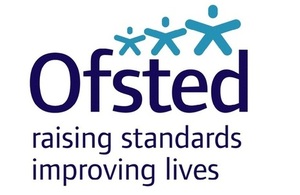Learning lessons will help tailor 16 to 19 Study Programmes
Ofsted publishes a report 'Lessons learned from the Foundation Learning provision for the new 16 to 19 Study Programmes'.

The report identifies the lessons learned from the Foundation Learning provision to help further education and skills providers develop study programmes for young people who need support to further their education or training.
On 1 August, the Foundation Learning provision will move into the new 16 to 19 Study Programmes. The study programmes are for all learners aged 16 to 19 and include all levels up to level 3, including A levels. The Foundation Learning provision is funded by the Education Funding Agency (EFA). Its purpose is to provide learners with individualised learning programmes to support their progression to further education, training or employment.
Latest figures show that 152,000 16 to 18 year olds were not in education, employment or training for the last quarter of 2013. From 1 September 2013, all young people aged up to 17 will be required by law to be in Further Education, training or employment. Many of these young people will have similar needs to those on Foundation Learning provision. Colleges and providers will need to be ready to provide support for this group of people.
The new traineeships launched by Matthew Hancock, the Minister for Skills in May will be part of the new Study Programmes and are likely to be highly suitable for this group of learners to help them progress to further vocational training, especially apprenticeships.
However, the survey report for 2011/12, found only 49% of learners on Foundation Learning provision progressed onto full-time education, training, apprenticeships or employment.
Matthew Coffey, Director of Learning and Skills for Ofsted said:
It is important for the Government and the sector to learn lessons from previous programmes highlighted in this report, which will aid the development of the 16 to 19 Study Programmes. Since the full implementation of Foundation Learning provision in August 2010, the number of learners who go onto full time education or training, an apprenticeship or employment has been too low.
To break this pattern, providers must make use of best practice in understanding why some providers are succeeding where others fall short.
The report highlights the positive characteristics of the programmes including:
- comprehensive initial assessments to identify specific areas of need for individual learners
- good support and guidance by staff and external agencies that were very effective in enabling young people who had been disengaged from learning to return to study
The report found that when developing the Study Programmes for this group of learners, providers need to make better use of work experience. The availability, use and quality of work experience were poor. Only 3 of the 41 providers visited in the sample offered work experience placements to all their learners. Work experience is a significant feature of 16 – 19 Study Programmes. Ofsted’s report highlights three providers that have achieved this very successfully in order to share good practice.
Study Programmes should also focus on improving impartial advice for learners in relation to progression routes as too many providers did not make adequate arrangements to support learners’ decision-making about career options.
Inspectors also found providers should use data effectively to track and analyse performance of young people’s success in finding suitable employment. A large proportion of providers had not systematically recorded learners’ destinations since the start of the Foundation Learning provision, when they no longer received payment for learners moving onto further education, employment or training.
Notes to editors
-
Media can contact the Ofsted Press Office through 03000 130415 or via Ofsted’s enquiry line 0300 1231231 between 8.30am - 6.00pm Monday - Friday. Out of these hours, during evenings and weekends, the duty press officer can be reached on 07919 057359
-
Local Authorities are required to secure sufficient suitable education and training for all young people aged 16-18 (inclusive) in their area (under section 15ZA and 18A of the Education Act 1996 (as inserted by the ASCL Act 2009)) and to make available to young people aged 19 and below, support that will encourage, enable or assist them to participate in education or training (section 68, Education and Skills Act 2008.)
-
Links to good practice case studies:
Community Training Services Limited
This example shows how Community Training Services Limited (CTS) works effectively in partnership with Keir Sheffield LLP, Sheffield Homes and Sheffield City Council on the City Stewardship Programme. The programme targets young people who are the furthest removed from the job market and aims to provide skills, motivation and the work ethic they need to find employment. Of particular interest is the opportunity it provides for learners to experience real work in horticulture and construction.
Economic Solutions Limited (Skills Solutions)
This example shows how Skills Solutions (part of the Economic Solutions Group) has developed a wide range of high-quality work experience opportunities including tasters, work placements and work trials. They cover a variety of vocational options to reflect learners’ preferences and to improve their employability skills.
Work experience and the development of employability skills are often seen as weaker areas for learners on Foundation learning programmes. This example explains how Bassetlaw Training Agency (BTA) has taken robust action to ensure that all learners are encouraged to develop these skills from the very first day of their programme. The curriculum successfully prepares learners for progression into workplace learning by offering individual programmes and qualifications to support employability skills.
Media enquiries
Clive House
70 Petty France
London
SW1H 9EX
Email pressenquiries@ofsted.gov.uk
Monday to Friday, 8:30am to 6pm 0300 013 0415
Out of hours duty press officer 07919 057 359